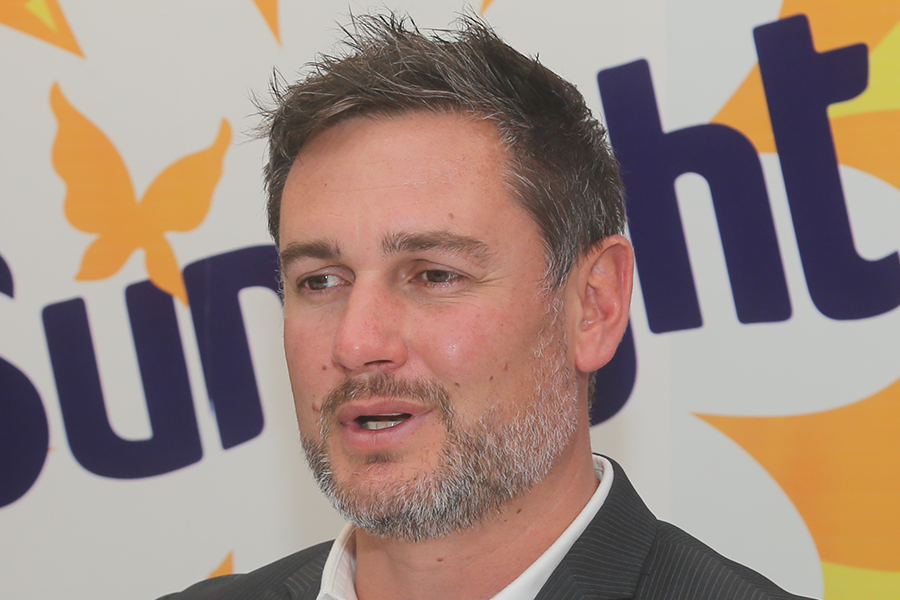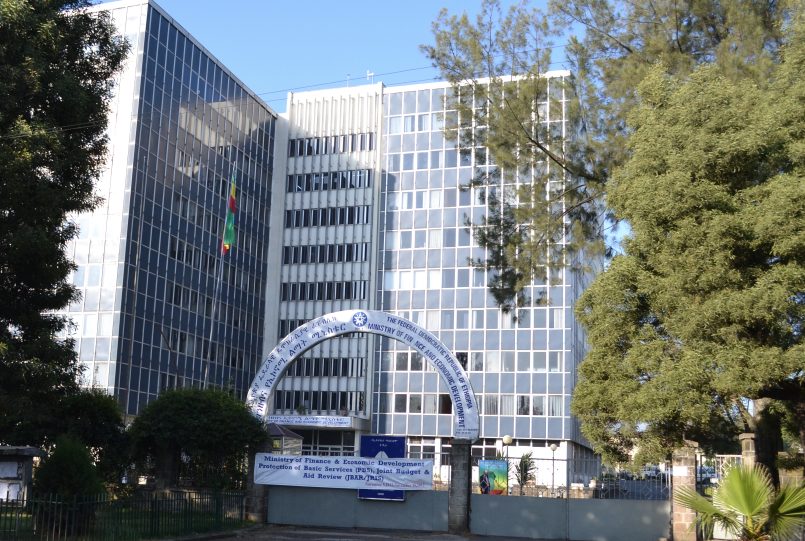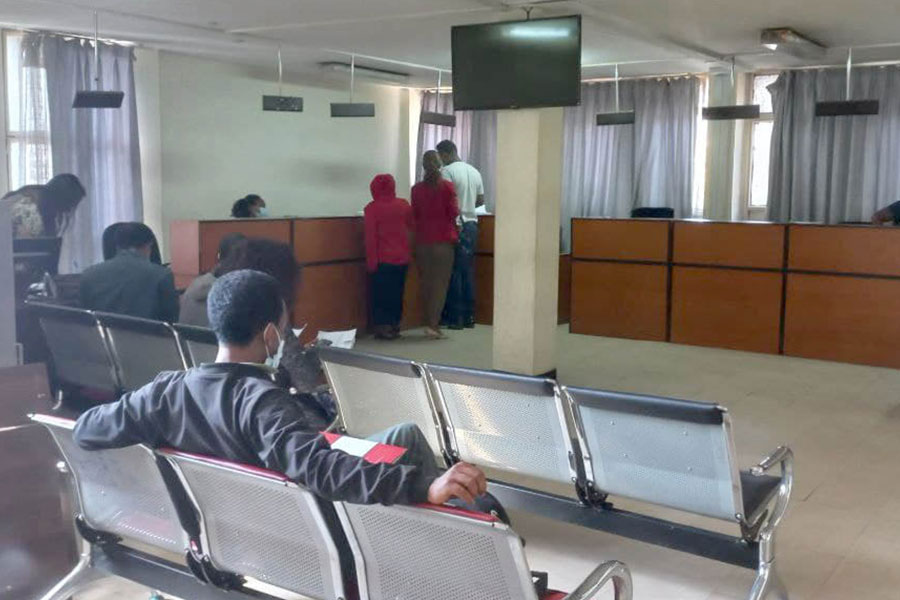
Fortune News | Aug 22,2020
Jul 10 , 2021
By José Antonio Ocamp , Tommaso Faccio
The July 1 agreement by 131 countries to establish a global minimum tax rate of at least 15pc for multinational corporations (MNCs) and reallocate taxing rights is a step forward. But the deal as it stands represents another missed opportunity to deliver an equitable outcome for developing countries.
It is good that multilateral efforts to reform global taxation are back in favour. This is largely because US President Joe Biden’s administration wants to end the race to the bottom in corporate tax rates – a contest that has benefited only tax-havens. In most cases, lower tax rates not only failed to attract new investment to countries but also deprived governments of the funds they need for social objectives and infrastructure improvements.
But the new tax deal reflects the imbalances in global power relations. G7 countries put the agreement they reached last month to the 139 countries that are part of the OECD/G20 Inclusive Framework on Base Erosion and Profit Shifting. Faced with a take-it-or-leave-it choice, most developing countries agreed, despite significant reservations. But a handful – including Nigeria, Kenya, and Sri Lanka – did not sign up. And even some of those who did make it clear that the negotiations were not over.
Several significant issues remain. The first is that the proposed minimum tax rate of 15pc is too low to deter profit-shifting by MNCs. This reflects several developed countries’ preference to protect their own global firms rather than follow the lead of the United States and Argentina, which had called for a minimum tax rate of 21pc, and of many African countries, which proposed a 20pc rate. And for most countries in Latin America or Africa, which had average corporate tax rates of 26pc and 27pc, respectively, in 2020, a global minimum rate of around 15pc would do little to reduce incentives for profit-shifting. Several countries may thus unilaterally adopt a higher minimum rate.
Furthermore, under the proposal agreed at the OECD, most of the additional tax revenues will go to MNCs’ home countries, not to the so-called “source” countries where these companies do business and generate profits. A number of developing economies want source countries to have priority in applying the minimum tax, particularly to MNCs’ interest earnings, royalties, service payments, and capital gains. The current deal would allow them to apply the minimum tax only to interest, royalties, and a set of payments yet to be defined.
The amount of revenue the minimum tax generates will depend on the rate. This is vital for developing countries. A recent study by the EU Tax Observatory shows that with a 15pc tax rate, Mexico, South Africa, and Brazil stand to gain an additional half a billion, 600 million, and 900 million euros, respectively, of additional corporate income tax revenues in 2021, compared to 900 million, two billion, and 3.4 billion euros, respectively, with a 21pc levy. The 25pc minimum rate advocated by the Independent Commission for the Reform of International Corporate Taxation would yield an extra 1.3 billion euros for Mexico, three billion euros for South Africa, and 7.4 billion euros for Brazil.
The OECD agreement also introduces a formula to allocate MNCs’ global profits for tax purposes. But it would apply only to firms with annual global turnover exceeding 20 billion euros and profit margins of at least 10pc of revenue. Moreover, only 20pc to 30pc of their “residual” profit above that threshold would be subject to tax in the countries where it is generated. This new rule may therefore generate less than 10 billion dollars of additional revenue globally a year.
Developing countries’ main demand throughout has been for a meaningful reallocation of taxing rights to source countries. The G-24, the major grouping of developing economies in the talks, has called for 30pc to 50pc of residual profits to be reallocated, while the African Tax Administration Forum (ATAF) is now asking for at least 35pc.
A simpler solution would be to allocate MNCs’ global profits among countries by a formula based on key profit-generating factors such as employment, sales, assets and resource use. But previous demands by both the G-24 and the ATAF to apportion a percentage of all profits, whether routine or residual, to source countries have been rejected.
Another problem is that signatories to the OECD agreement are being asked to remove unilateral measures such as digital services taxes. Many developing economies are not happy about rescinding these levies, or about limiting their options to tax digital MNCs in the future.
The final concern is the demand that developing countries accept mandatory arbitration of disputes. Many have historically regarded this as an infringement on their national sovereignty. They also point to nontransparent outcomes and prohibitive costs, and the fact that most arbitrators come from developed countries.
But the July 1 announcement is not the end of the road. Although the G20 is likely to endorse the proposal this week, negotiations will continue, with a final agreement expected in October. To change the outcome, developing countries must now push for a higher global minimum tax rate and a bigger reallocation of taxing rights, and refuse mandatory arbitration.
The fight for a fairer international tax system will continue beyond this current process, perhaps in a more inclusive forum, as the United Nations Panel on International Financial Accountability, Transparency & Integrity has recently argued. The coming months will be critical to ensuring that the final deal does not simply reflect rich economies’ interests, but rather generates significant extra revenues for all countries, including those that need them the most.
PUBLISHED ON
Jul 10,2021 [ VOL
22 , NO
1106]

Fortune News | Aug 22,2020

Exclusive Interviews | Mar 18,2023

Fortune News | Aug 03,2019

Fortune News | Nov 20,2021

Radar | Apr 22,2022

Viewpoints | Jun 27,2020

Viewpoints | Sep 30,2023

Editorial | May 02,2024

Agenda | Mar 11,2023

Radar | Oct 23,2018

Photo Gallery | 171317 Views | May 06,2019

Photo Gallery | 161560 Views | Apr 26,2019

Photo Gallery | 151264 Views | Oct 06,2021

My Opinion | 136284 Views | Aug 14,2021





Dec 22 , 2024 . By TIZITA SHEWAFERAW
Charged with transforming colossal state-owned enterprises into modern and competitiv...

Aug 18 , 2024 . By AKSAH ITALO
Although predictable Yonas Zerihun's job in the ride-hailing service is not immune to...

Jul 28 , 2024 . By TIZITA SHEWAFERAW
Unhabitual, perhaps too many, Samuel Gebreyohannes, 38, used to occasionally enjoy a couple of beers at breakfast. However, he recently swit...

Jul 13 , 2024 . By AKSAH ITALO
Investors who rely on tractors, trucks, and field vehicles for commuting, transporting commodities, and f...

Oct 4 , 2025
Eyob Tekalegn (PhD) had been in the Governor's chair for only weeks when, on Septembe...

Sep 27 , 2025
Four years into an experiment with “shock therapy” in education, the national moo...

Sep 20 , 2025
Getachew Reda's return to the national stage was always going to stir attention. Once...

Sep 13 , 2025
At its launch in Nairobi two years ago, the Africa Climate Summit was billed as the f...

Oct 5 , 2025 . By NAHOM AYELE
In Meqelle, a name long associated with industrial grit and regional pride is undergo...

Oct 5 , 2025 . By BEZAWIT HULUAGER
The federal government is set to roll out a new "motor vehicle circulation tax" in th...

Oct 5 , 2025 . By NAHOM AYELE
The Bank of Abyssinia is wrestling with the loss of a prime plot of land once leased...

Oct 5 , 2025 . By BEZAWIT HULUAGER
The Customs Commission has introduced new tariffs on a wide range of imported goods i...